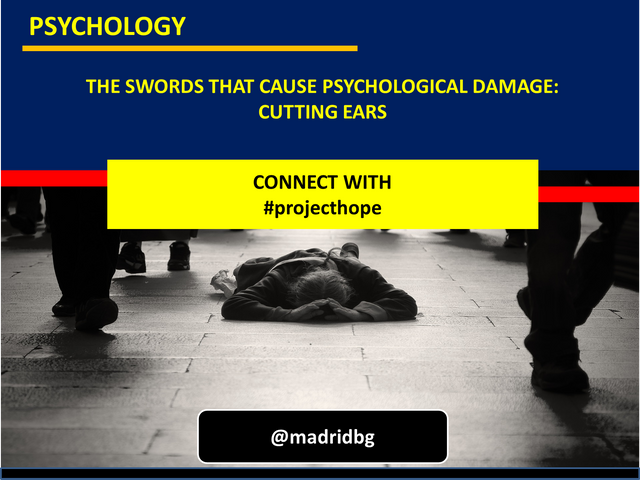
Author: @madridbg, via Power Point 2010, using public domain images. James Chan
Greetings dear readers of this prestigious platform, the topic that concerns us in this installment we will give a psychological approach, based on the biblical contributions and the teachings provided by Jesus Christ.
Knowing that scientific content is the basis of this dissemination space, it may seem contradictory to a great extent; however, we have chosen to carry out a diversification process that allows us to reach different users or readers.
In this sense, it is necessary to remember that the night Judas delivered or betrayed Jesus, he was on Mount Gethsemane, where it is biblically recorded that he was in prayer together with some of his disciples.
According to the approach presented in Matthew 26:39–44, Jesus was aware that he had to suffer for the forgiveness of our sins, however, at that time and in his position as a man the anguish overwhelmed him and he thought about the possibility of not drinking from that bitter drink, the pain was so great that in the Bible it is recorded that he came to sweat drops of blood, which in a certain way was a representation of the forgiveness of our sins. Luke 22:41–44.
In such a way that beyond the pain, his conviction made him obey the Heavenly Father so that he prepared himself physically and psychologically for the consequences of what would come as a result of the betrayal of Judas.

Author: churchofjesuschrist
In the Bible it is recorded that the betrayal was consummated through a kiss, where the Priests of the time and the elders of the town arrived armed with swords and clubs to arrest him, to which Peter responded by drawing his sword and cutting off his ear to one of the members or companions of the Priests. Action to which Jesus replied "Return your sword to his place, whoever wields his sword dies by the sword" Matthew 26:52.
At this point in the topic we realize that we human beings and in our human condition analogically carry both Jesus and Peter inside us, the first because we are knowledgeable people, with capacity for compassion and help others and the second, because according to the circumstances, we are reactive people who execute actions without thinking about the consequences and without taking into account the damage we can do to others.
And it is this behavior that we will use as a basis to base these lines of writing, since our actions in many cases behave like swords or daggers that cause serious psychological damage to the people they who are addressed. Damages that we will break down as follows:

Author: Vicki Nunn, Pixabay
1. The swords of the mouth: Presumably many have heard the phrase that a word hurts more than a blow, this type of action is usually a reaction that can be according to the circumstances and in many cases even intentional. However, in one scenario or another, it produces negative effects on the other person, for which it is necessary to think before acting or saying something that we can regret, we must learn from the benefits that Jesus did not teach, where we use our mouth as a channel to bless and not to cause harm and harassment.
2. Sword of indifference: indifference is nothing more than a disconnection that occurs intentionally before the actions of another person and which is expressed in the form of cold conversations, with closed responses, where no affection is shown before in the deal we decided to give.
This type of behavior certainly damages relationships and is contrary to compassion, which is what we really seek as believers in the word of God. At this point, we draw the sword of indifference when we do not value the work that others do or when we do not highlight the actions that our children, wives, mothers or friends perform for our well-being, in the same way the use of this sword charges negative value when we use it as a measure to hurt the actions of our peers.
3. Sword of actions: both indifference and the misuse of our language, are actions that deteriorate the soul and more when we are unconscious people who show little concern before the adversities of our fellow men, remember a person who does not have the ability to serve, has not learned to live either. For which we must be proactive and intentional providing support in the face of adversity in the lives of our fellow men.

Author: smokefish, Pixabay
Under the above, it is valid to ask you dear reader, According to the circumstances of life, who manifests in you, a Jesus or a Peter?
The answer to this question can be reflected in the comment section, however, it is more aimed at self-assessment since the objective of this writing is to awaken many more Jesus throughout our existence .
In general terms, the adversities that Jesus suffered on Mount Gethsemane, I prepare him for the harsh circumstance that would arise in his life, the same thing is happening with us since negative events shape us and prepares to face future scenarios that we are about to experience.
OF INTEREST

•

Grateful with the community @project.hope and with all the management team of the same one that they motivate us to continue working in a mutual and balanced growth.


Hi @madridbg Greetings I work daily to look like Jesus but as a human being full of weaknesses sometimes I look like Peter, what I never try is to be like Judas, to reach the betrayal with any of my peers, work daily to be better every day knowing our weaknesses and strengths is to walk with Jesus, never do to anyone what you would not want for you, good post very thoughtful
Downvoting a post can decrease pending rewards and make it less visible. Common reasons:
Submit
Greetings @aplausos how wonderful this world would be if we all exploited the Jesus we carry inside, grateful for your response.
Regards
Downvoting a post can decrease pending rewards and make it less visible. Common reasons:
Submit